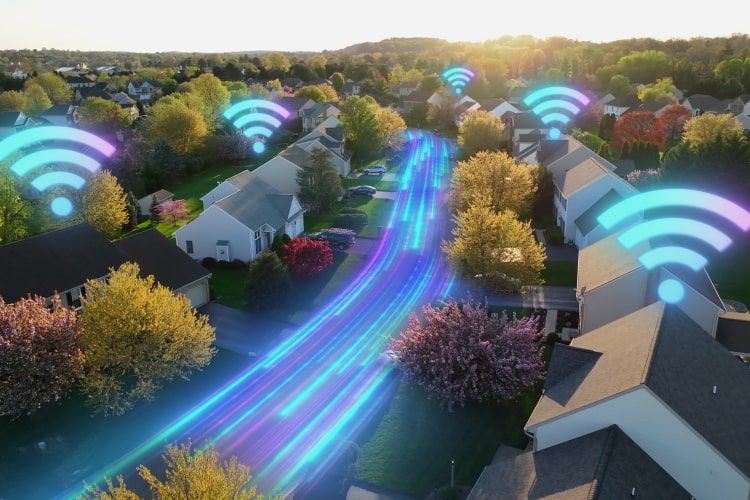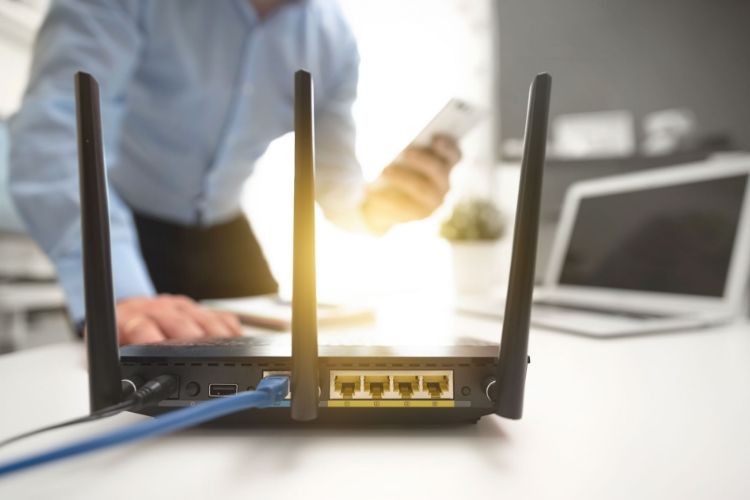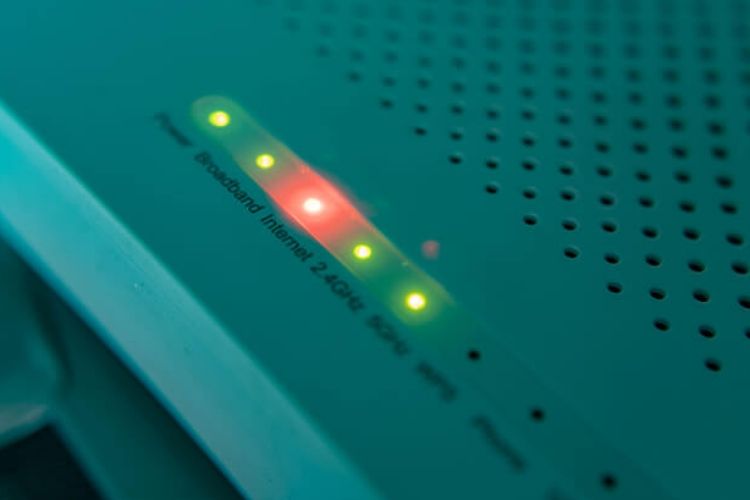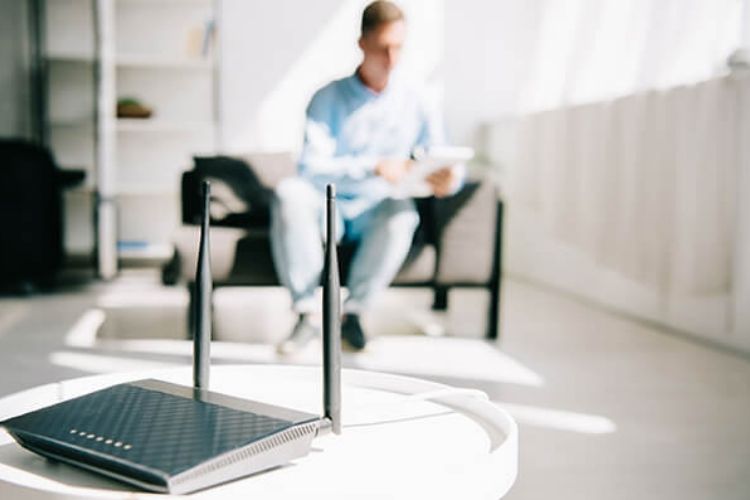Choosing the right internet speed can make or break your online experience, solving common troubles like lag, buffering time, dropped calls, and frozen screens. Your internet requirement can be calculated by understanding your household size, number of users, and online activities. This blog aims to provide you with a breakdown of all the factors you must take into consideration when picking an internet plan that would deliver a smooth and seamless home network.
Here’s the major takeaway before we dive in:
- The fastest speed isn’t always the best solution.
- There’s a lot you can do with a 100 Mbps speed.
- Make sure you really need gigabit speeds before committing to a costly plan.
What We Discovered
- The minimum internet speed for residential users is 100 Mbps download and 20 Mbps upload speed.
- A good internet speed has low latency and high bandwidth.
- Fiber internet offers equally fast upload and download speeds with an ultra-low latency network.
What is a Good Internet Speed?
According to the Federal Communications Commission (FCC), a download speed of 100 Mbps with an upload speed of 20 Mbps is the minimum requirement for any broadband internet plan. While this establishes the basic internet speed sufficient for residential users, it may not apply to all. Users or households with heavy internet usage will need a faster speed plan to meet their needs and achieve a smooth and seamless coverage. Let’s break down the internet speed requirements for common online activities.
| Online Activity | Required Speed/User Range |
|---|---|
| Scrolling social media | 5 – 10 Mbps |
| Viewing reels/TikTok | 10 – 25 Mbps |
| Uploading video content | 25 – 30 Mbps |
| Streaming 4K video content | 30 – 50 Mbps |
| Working from home | 50 – 100 Mbps |
| Casual gaming | 25 – 50 Mbps |
| Competitive gaming | 50 – 100 Mbps |
| Professional gaming | 300 – 500 Mbps |
Bear in mind that these are estimated speed requirements per user. If you have multiple users who need the internet for these activities simultaneously, you should calculate the speed requirement multiplied by the number of users. For example, a household with 2 users who scroll social media, view TikTok, work from home, and indulge in casual gaming would require:
10 Mbps + 25 Mbps + 50 Mbps + 100 Mbps = 185 Mbps
85 Mbps x 2 users = 370 Mbps
Understanding Internet Speeds
Internet speed isn’t as simple as car speeds. Instead of just looking at the speedometer in your car that tells you how many kilometers per hour you’re moving, internet speed is made up of three major components that determine how fast your connection is. A combination of download speed, upload speed, latency, and bandwidth provides an exact measure of the efficiency of your WiFi. Let’s understand these terms:
What is Download Speed?
Download speed is usually the main metric used to describe internet speeds. It is the speed at which data is downloaded from the web onto your devices. Download speeds impact the reception of data and determine how fast you will receive information like pictures, videos, messages, etc.
Most internet providers market their internet plans by highlighting the download speeds they offer. For example, a 500 Mbps plan has 500 Mbps of download speed, but not the same amount of upload speed necessarily. Only fiber internet plans deliver equally fast download and upload speeds, also known as symmetrical speeds. Connection types such as cable, 5G, satellite, and DSL offer a higher download speed and lower upload speeds.
Want to Know How Much Speed You’re Running on Now? Take Our Speed Test and Find Out!
What is Upload Speed?
Upload speed refers to the speed at which you can send data to the web. When you post a picture online, it gets uploaded to the web for viewers to see. Upload speeds determine how smooth the uploading process will be. The faster your upload speed is, the smoother your experience with online activities that require sending data will feel. Video calling is a good example to understand the importance of upload speeds.
During a video call, your video is constantly being uploaded or ‘sent’ to the person you’re calling, and their video is constantly being downloaded or ‘received’. This is where having a faster upload speed comes into play by reducing the lag or delay in a smooth live call.
Talking about lags, last but not least, let’s explore latency!
What is Latency?
Internet latency is the time or delay between taking an action online and seeing the result of that action. Lower latency delivers better network responsiveness and fewer lags, whereas a higher latency means delayed results. Latency is measured in milliseconds, and every internet connection type, like fiber, cable, and satellite, has its own standard latency. Fiber internet provides the lowest latency, which means it is the most responsive internet type.
Apart from having fast download and upload speeds, your latency should be as low as possible so you can enjoy low lags and a smooth online experience.
What is Internet Bandwidth?
Internet bandwidth is the measure of how much data can be transferred at a set time. Your WiFi speed may be 500 Mbps, but when shared with multiple users, everyone may not have access to the same speed because your network can only provide a set amount of bandwidth for each user or device. Newer WiFi technologies like WiFi 6, 6e, and 7 offer greater bandwidth and are ideal for multi-user homes.
Bandwidth, in essence, is the capacity of your internet to send and receive data. It is measured in Mbps/Gbps, defining the amount of data that can be transferred within a second.
How to Pick a Good Internet Plan?
There is no one-size-fits-all when it comes to choosing the best broadband plan for your home. The right plan for you will depend on some of the following factors:
- The Speed requirement for your household size
- Availability of connection type in your area (fiber/cable/satellite/5G)
- Your budget
- Data needs
First, find out what speed you need before you start searching for internet providers available in your area. Once you know what speed tier would work for you, look at the plans and their prices for available options near you. By doing a quick zip check, you can find out which connection types are offered at your address, from which you can pick a plan within your budget. We recommend going with a provider that offers unlimited data so you don’t have to worry about running out of data or paying any extra charges in case it happens.
Need Help Finding the Perfect Speed for Your Home? Take Our Plan Builder Quiz to Get a Personalized Internet Plan Recommendation!
Frequently Asked Questions
What is a good internet speed for gaming? ![faq arrow icon]()
A good internet speed for casual gaming is around 25 – 50 Mbps, while competitive or professional gaming requires a speed of 50 – 100 Mbps. Gaming requires a higher upload speed and low latency for smooth live action. Fiber and cable internet are the most suitable connection types for gamers.
How much internet speed do I need for 4k streaming? ![faq arrow icon]()
An internet speed of around 30 – 50 Mbps is sufficient for seamless 4K streaming. High-quality YouTube videos, or streaming platforms like Netflix, Hulu, and Prime Video, require a consistent network to buffer without any lag.
What is a good upload speed? ![faq arrow icon]()
A speed range between 30 – 50 Mbps is ideal for all types of online activities, including video calling, streaming HD content, working from home, or taking online classes. If you have multiple users who need the internet for intensive online activity, a fiber internet connection with symmetrical speeds would be ideal.
Table of content
Detailed Provider Comparisons
Free On-Call Consultation
Top Internet Deals
Recent Articles
How to Speed Up Cable Internet?
Discover ways to optimize and improve the performance of your cable internet as recommended by industry experts
Read moreBest Modem for Cable Internet - Complete Guide
Check out our list of best modems for cable internet for optimized internet performance
Read moreWhat is Cable Internet & How is it Different from Others?
Discover all about cable internet and learn how it compares to other connection types
Read moreBest Modem-Router Combos for Cable Internet
Check out our roundup of the best modem-router combos for cable internet for better and solid internet performance
Read moreTable of Content







